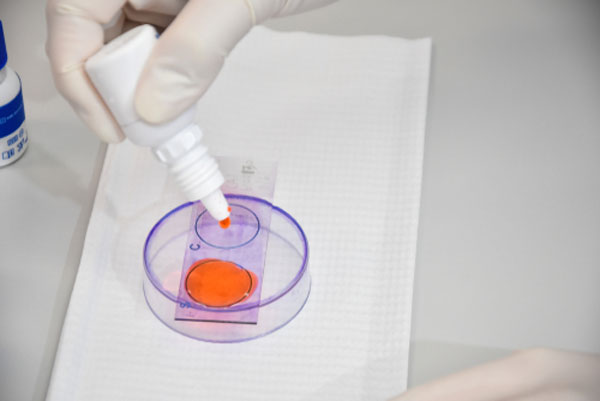Impact of Sperm DNA Fragmentation in Fertility and Pregnancy
Male infertility factors are equally responsible for hindrances in natural conception and pregnancy in a couple. Almost 50% of all cases of infertility may be associated with a malefactor. Various semen analysis and tests are done to measure sperm concentration, motility, and morphology in men. In fact, semen analysis is regarded as the gold standard test for determining a man’s fertility. As a matter of fact, semen analysis does not provide information related to the genetic constitution of the sperm. This is an essential element for the normal development of an embryo. Hence, a high level of DNA damage in sperm cells can be the cause of male infertility, which may not be detected by conventional examinations.
Sperm DNA and Semen Parameters
Sperm DNA fragmentation is categorically recorded much higher in infertile me. On the other hand, men with poor semen parameters usually have high sperm DNA fragmentation. Various researches, studies, and test trials have proven that high sperm DNA fragmentation can persist in men who have normal semen parameters. Tests and diagnosis for unexplained infertility often reveal this.
Sperm DNA and Embryo Development
Usually, the embryos those are derived from sperm in with highly fragmented DNA reveal poor prognosis. High sperm DNA fragmentation affects the development of day two embryos. It, in fact, impairs the subsequent development of the blastocyst once the paternal genome is switched on. It is evident from test trials that DNA damage in the embryo leads to cell degeneration and gene mutations. It also causes arrested embryo development, miscarriage, and abnormalities in the baby born out of such pregnancy. In rare cases, it even increases susceptibility to childhood cancers.
Sperm DNA, Pregnancy and Miscarriage
Couples often experience significantly reduced chances of pregnancy if the male partner has a high percentage of sperm with fragmented DNA. The chances of pregnancy, however, can be increased with assisted conception treatment. High sperm DNA fragmentation causes reduced natural pregnancy rates as well as live birth rates. Apart from this, sperm with high DNA fragmentation can cause higher miscarriage rates in normal and assisted conception both. Sperm DNA fragmentation causes unexplained infertility, recurrent miscarriages and failed IVF treatment cycles.
Causes of Sperm DNA Fragmentation
Sperm DNA damage majorly occurs due to the stress of excessive production of reactive oxygen species. Defects in sperm chromatin packaging or DNA repair mechanisms and abnormalities in the programmed cell death regulation or abortive apoptosis also causes DNA fragmentation.
Major Factors Those Influence Sperm
-
Elevated testicular temperature
-
Varicocoele
-
Advanced age
-
Cigarette smoking
-
Exposure to environmental and occupational pollutants
-
Obesity
-
Poor diet
-
DNA fragmentation
-
Infection
-
Leucocytospermia
-
High fever
-
Drug use
Indications for Male Patients
-
Multiple failed IVF/ICSI treatment
-
Recurrent miscarriage in partner
-
Unexplained infertility
-
Arrested embryo development
-
Poor blastocyst development
-
Advanced age
-
Varicocoele
-
Poor semen parameters exposure to harmful substances
-
DNA Fragmentation Test
Treatment
Most causes of DNA fragmentation cannot be treated. However, some corrections can be done by making changes in lifestyle and diet if the damage is caused by oxidative stress. Treatment of infection with antibiotics is prescribed by fertility experts to repair sperm DNA damage. However, it is important to identify the exact bacteria causing the irregularities before prescribing any antibiotics.
ICSI is an effective treatment other than IVF for sperm with high DNA fragmentation. This treatment procedure has a vital impact on fertilization and pregnancy rates. IVF and ICSI cycles help to achieve better chances of conception and embryo formation. Infertile intended parents usually go for these assisted reproduction programs to have a baby of their own.
